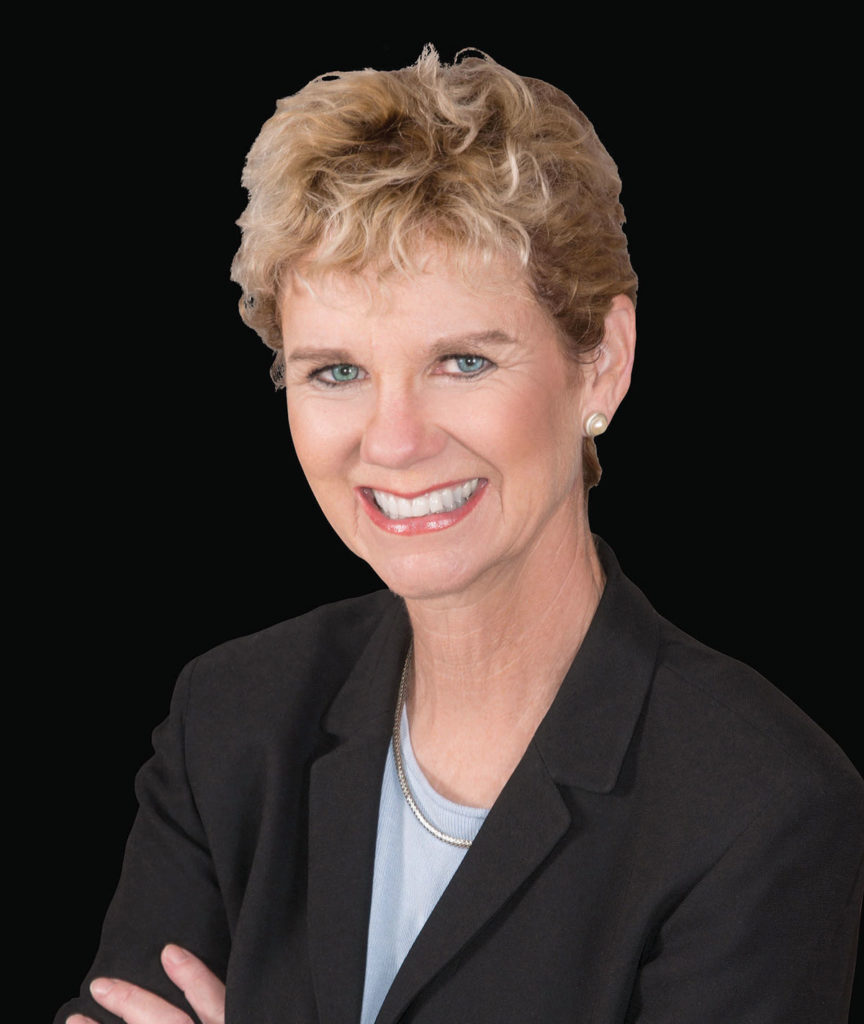Women & Wealth: Financial Advice from Middleburg’s Experts

Story by Kaitlin Hill
Though money management is not inherently gendered, women share a specific set of circumstances when planning for financial wellbeing and longevity. From first jobs to retirement, and the uniquely female experiences in between, more women are seeking to take ownership of their assets and build the confidence to challenge out-of-date gender roles regarding money.
Financial experts Julie-Anne Lewis, Kerry Hannon, Anita Antenucci, and Helen Modly offer their advice for women and their wealth during all stages of life.

Why is it important for women to focus on financial planning?
Kerry: “The deck is stacked against women…. Women tend to live longer than men. At the end of life, we have a lot of medical costs and no way of crystal-balling what they might be…. Also, we know that there’s a pay gap, roughly 80 cents on the dollar. Women tend to be out of the workforce for an average of seven years, for caregiving of children or to take care of aging parents. So, you have a couple of things right off the bat that can set women back financially.”
Julie: “Our demographics are changing. The women that are just graduating, they are not getting married as early as we used to, they are not having children as quickly as we used to. They’re not buying their first home as quickly as we used to. So, they need to be in control of their finances, and it brings a whole set of different dynamics to the table.”
What are some steps a woman can take to gain more confidence when managing her money?
Helen: “One of the things that I think all people disregard, women particularly, is their earning power over their lifetime is their single largest asset. And we don’t treat it as an asset. There are things we can do, such as an extra certificate in IT, maybe an extra course in HR or training in negotiations. Education is a good way to raise earning power.”
Anita: “I would recommend that you start by putting together your own personal balance sheet. Treat your personal portfolio like a business. Put a summary of everything on one page, a summary of all of your assets—everything from real estate, stocks, to collections, etc. A snapshot of your financial picture is always super helpful in thinking about not just the diversification of your speculative portfolio, but diversification of your entire portfolio.”
What is your advice to a young woman starting her first job?
Julie: “When you get your first job, take advantage of that 401(k) as early as you can. A lot of times people will say, ‘I can’t afford it.’ You can afford it. Pay yourself first and then go in every quarter and adjust your contributions by as little as 1% and eventually you will max out. And a lot of times companies still match that 401(k). By not contributing, you’re actually leaving money on the table.”
Helen: “I tell both of my daughters, a man is not a plan. I want them to be self-sufficient…. A lot of young women don’t have a plan. They haven’t set any savings goals because they don’t know what they would be saving for. But [it’s important] to save so that you have control and flexibility, making choices down the road.”
Do you have any advice for a woman starting a family? How can she balance planning for her children’s future and her own?
Julie: “I always say the first thing you can do for your child is really take care of your retirement. The more that you can take care of yourself, the less of a burden you will be on your child down the line. But if you receive gifts for your child, whether it’s $50 or $100, take that money and put it into an educational fund. That’s what you can do to advance your child, so at least they have a starting point. But never compromise your retirement to advance your child’s education.”
How would you advise a woman opening her own business?
Kerry: “The advice I give women is, if possible, start it on the side. Go in baby steps, take your time to test and see if there’s a market for what you’re offering…And there are some wonderful resources for female entrepreneurs and small businesses. You want to talk to SCORE [a non-profit] that has wonderful free advice from retired executives that will help you with your business plan. There are chapters throughout the country.
Get yourself designated as a woman-owned business. This opens you up to getting government contracts. There is a mandate by government agencies and contractors to hire a certain percentage of women and minority-owned businesses.”
What is your advice to a woman thinking about retirement?
Julie: “Retirement is not indicative of an age. It’s really indicative of when you’ve reached that ‘milestone.’ So making sure you have a map, it’s almost like you get in the car and you don’t have a map, why would you go anywhere? Well, if your retirement is the same way, you need someone to tell you ‘this is how much I need to save. This is how much I can expect to receive in retirement, with inflation, with any kind of market pullbacks.’ So when you get to retire, you know exactly where your income is coming from, what’s taxable and what’s not.”
Kerry: “Plan on working longer… as a safety net. The more you can bring in some kind of a paycheck, the more it will keep your life balanced. Whether it is part-time, seasonal, contract—it can take many forms. Continuing to work as we age is really important because it’s good for our mental and physical health because we stay engaged in the world…. It allows us to pursue our passions and our dreams.”
What is important to consider when choosing a financial advisor?
Anita: “Whether it’s a company or you’re coming to someone like me to help you understand your financing options, there are a couple of people that you need to put on your team… The point is, have a team—a few people that you trust and who understand your situation and ideally can grow with you over time.”
Kerry: “Find somebody who you trust, somebody possibly recommended by a friend. But do your homework. Interview them. You’re interviewing them for a job. The buzzword is ‘fiduciary,’ that they put your interests first. I tend to recommend that people look for someone with the CFP designation, because they’ve taken an oath that that’s what they are going to do…. Get someone who wants to know about all of you, not just how much money you have in the bank or how much you have invested in your portfolio. You want a planner who gets you.”
Do you have any advice for a woman who wants to be a more confident investor or have a better understanding of the stock market?
Helen: “I would say that she should read any book written by John Bogel. He was the one who started Vanguard, the one who started index funds. Basically, what he said is don’t try to pick out one stock to own, own all of them. And you can do that through a total US market, total world market, index funds. You buy it and then you just let it grow.”
Julie: “There are so many resources at your fingertips. I think reading can be addictive. I also think investing is addictive. Once you see your portfolio grow that’s a great catalyst to get you going. A good advisor will work with you. Regardless of where you are in the learning curve, they should be able to relate to you. I think for lay investors, Barons is a great periodical where you can learn a lot. David Bach wrote a great series years ago about smart women investing. It was just layman’s terms and simple nuances for how to get a higher net worth.”
Final Thoughts:
Kerry: “We don’t need different advice, we just want an advisor that looks us in the eye and advisors who understand our entire life. Someone who is not just concerned about buying and selling investments for us or what kind of money are they going to make off of us…. We don’t need different advice, we just need a different approach.”
Anita: “It’s not all about making money, it’s about what resources you have to put toward your priorities—paying off your mortgage, paying for your kid’s education, or owning a great horse that you can take out on the weekends.”

Julie-Anne Lewis is the Owner and CEO of Middleburg Wealth Management. Her practice specializes in results-oriented personalized investment strategies.

Kerry Hannon’s financial advice has been featured in The New York Times, Forbes, Money, U.S News and World Report and The Wall Street Journal and she has authored a dozen books, including the award-winning “Love Your Job: The New Rules for Career Happiness.” She boards her beloved horse, Caparino Z, at Rutledge Farm in Middleburg.

Helen Modly is a Wealth Advisor and Advisory Team Leader at Buckingham Strategic Wealth with an all-female office in Middleburg. She is a certified CFP and CPWA.

Anita Antenucci is a Senior Managing Director at Houlihan Lokey and leads the firm’s Aerospace, Defense, and Government practice. She has two decades of investment banking experience and was named one of Investment Dealers’ Digest’s Top 40 under 40 Investment Bankers in 2008 and 2010. When she isn’t negotiating deals for Fortune 500 companies, she enjoys time off on her Upperville Farm.
This article first appeared in the March 2019 issue of Middleburg Life.


